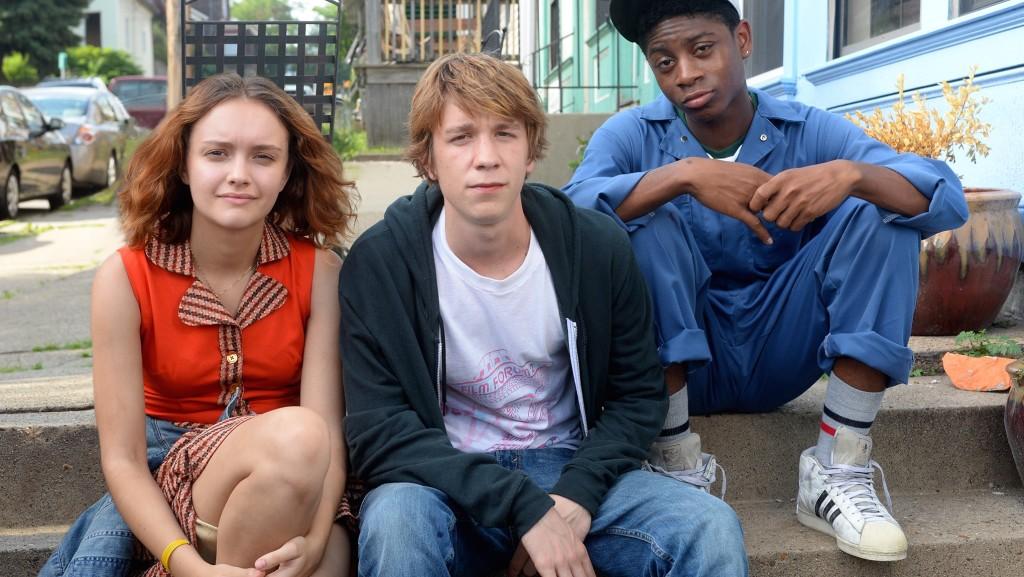Coming-of-age movies have become common fare at the box office over the last several months. Sudden crises of human emotion and harrowing journeys from youth to adulthood can provide a truly riveting cinematic experience, but only if done well. Such is the case of “Me and Earl and the Dying Girl,” a bittersweet dramedy that offers a refreshing take on the theme of moral growth, while simultaneously breathing life into a story that truly captivates audiences.
Based on Jesse Andrews’ 2012 novel of the same name and directed by Alfonso Gomez-Rejon, best known for directing several episodes of the anthology series “American Horror Story,” the film stars Thomas Mann as high school senior Greg Gaines, who juggles making mediocre films with longtime associate Earl (Ronald Cyler II) and avoiding close friendships with his peers. When Greg’s overbearing parents learn that his former childhood friend Rachel Kushner (Olivia Cooke) has been diagnosed with leukemia, they force him to make Rachel feel better by spending time with her. Despite the fact that neither wants the other’s company, the two begin meeting on a regular basis and find themselves embarking on a journey that promises to test their relationship in ways they had never imagined.
In retelling this tale of the struggle to navigate the loss of childhood innocence, Gomez-Rejon creates an atmosphere in which every scene is filled with enough sincerity and realism to keep viewers fully immersed from beginning to end. The setup initially comes across as the tried-and-true archetypal platform for a young-adult film, which primarily consists of complex love triangles, conveniently absent parents and emotionally crippling endings. By presenting itself as the story of three young adults struggling to make sense of the world they live in, “Me and Earl and the Dying Girl” shatters expectations and delivers a piece that is far more philosophical than what the audience originally anticipates.
Mann, Cyler and Cooke are undoubtedly the film’s most compelling elements, primarily because they are in every scene. Due to the minimalist script, Gomez-Rejon leaves the task of augmenting the main plot to the three co-stars, whose superb chemistry keeps the story going in several key instances. One example takes place near the film’s climax when Greg impulsively blames Earl for Rachel’s decision to discontinue chemotherapy, only to later realize that he turned his back on his only true friend. Though emotionally distant at the beginning of the film, the trio manages to form a close bond as they work together to navigate the harsh, unforgiving environment that is high school.
The supporting cast is completely immersed in their respective roles, each member taking the time to flesh out their characters and further contribute to the plot. Nick Offerman and Connie Britton work together to craft a memorable performance as Greg’s parents, while television star Jon Bernthal brings the character of Mr. McCarthy, a heavily tattooed history teacher and suspected pot smoker, to life through precision-perfect comedic timing. Comic actress Molly Shannon has a small part as Rachel’s mother, Denise, but maximizes her role by taking on the persona of a doting single parent who only wants to help her daughter live out her final days in peace. However, by the time the film ends, the title characters stand above the rest due to the evolution of their relationships with one another.
Viewers will constantly find themselves laughing, as they see everything from Greg and Earl’s horribly made short films to Denise’s inebriated clumsiness. In addition, the young adults in the audience will find themselves relating to Greg as he juggles spending time with his newfound friend and planning ahead for a possible future at college. Although there are dark undertones some might think unsuitable for younger viewers, such as connotations of death and depression, the film still manages to retain its family-friendly tone.
A perfect mixture of drama and humor, “Me and Earl and the Dying Girl” allows viewers to appreciate the world from a teenager’s point of view. Steering away from the typical tropes often found in young-adult films, this movie offers a new perspective on what it means to live life to the fullest.














